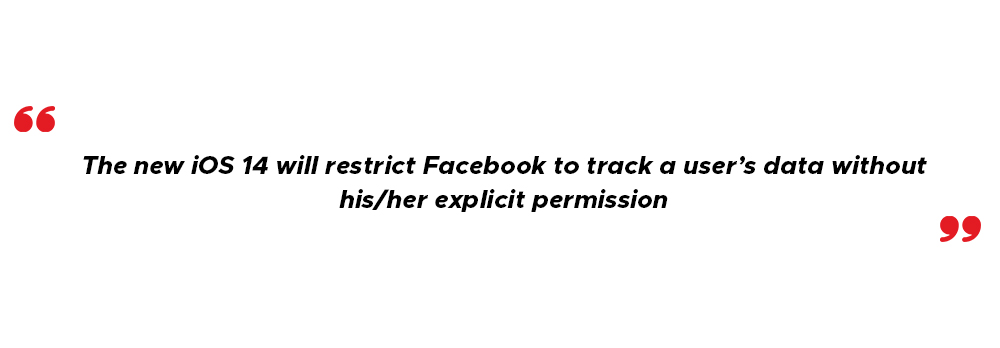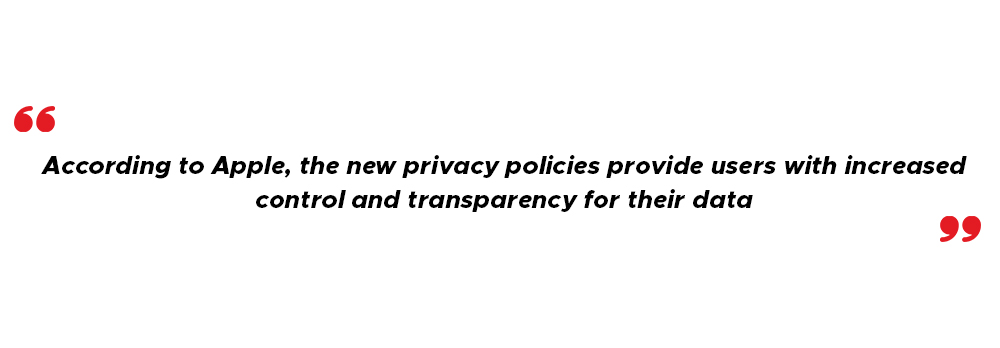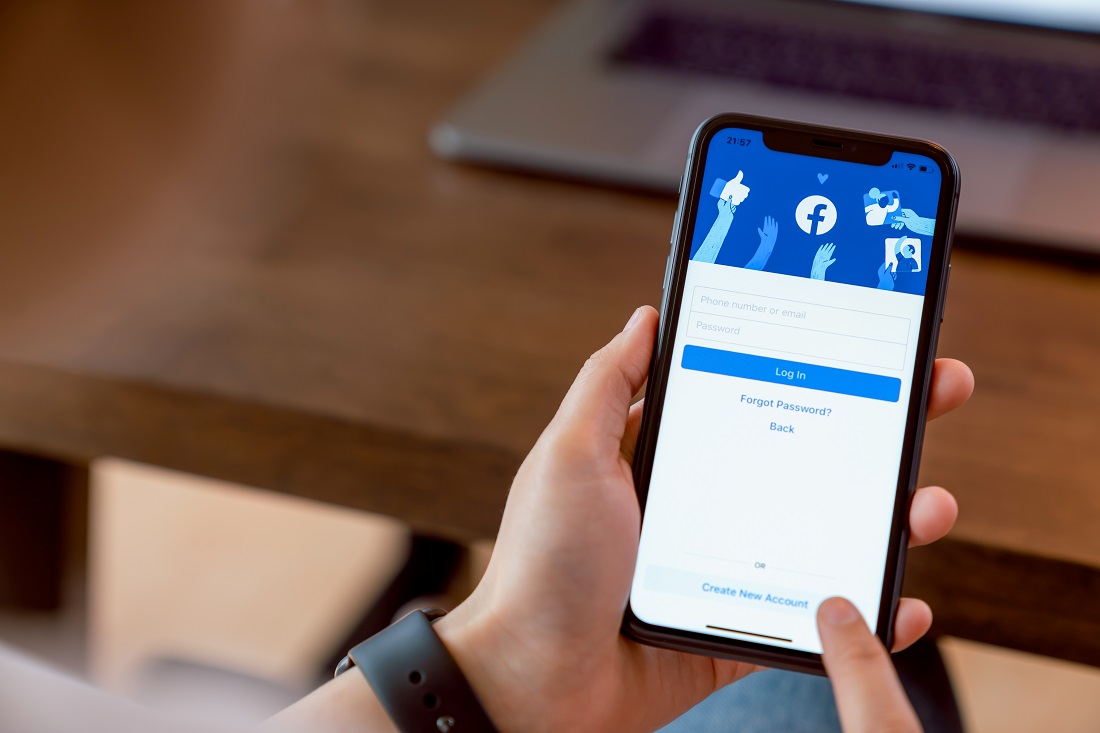As Apple’s iOS 14’s new privacy policies continue to fuel the Facebook–Apple feud, the employees of Facebook have reportedly backed the iPhone manufacturer. A little backstory into the whole fiasco – Facebook has been incessantly criticizing Apple for the last few months due to its new operating system iOS 14. The new iOS would restrict Facebook to track a user’s data without his/her explicit permission and the constant negotiations between the two giants have made things ugly.

Apple launched its new iOS earlier this year, which would begin to bar Facebook as well as its products from tracking iPhone users’ data or non-app movements. Due to this, Facebook’s feature i.e. targeted ads will take a supreme hit, which is also a prime source of revenue for the company. In a recent event, the social media giant released a full-page ad in notable newspapers such as The New York Times and The Wall Street Journal to slam Apple for incorporating restrictions in its iOS 14. It also stated that this would have a serious impact on small businesses that rely heavily on Facebook’s targeted ads to have a higher reach. Facebook has been continually putting the feature of benefitting small businesses at the forefront since a long time, as it is one of their most sympathetic pitch for businesses to put money in targeted ads.
What triggered this battle?
In 2020, Apple made an announcement about an update in their privacy policy regarding their user-tracking feature “Identifier for Advertisers” (IDFA), which is used by third-party apps for ad targeting. Every smartphone has this unique identifier that is used by marketers to target and measure their ad campaign effectiveness. With this policy in effect, data collection will get transformed into an opt-in feature, to which Facebook argues that it would excessively affect its customer base, given the fact that they are heavily dependent on the platform for advertising. On the other hand, Google has also disclosed certain adjustments that it needs to make. However, they haven’t expressed such a strong disagreement.
The new privacy policy by Apple seems to be quite simple: It’s consumer friendly, and now with Google or Facebook not tracking them, they can probably do as they feel. Meanwhile, Facebook is gearing up to take its fight with Apple to court in addition to releasing full-page ads in newspapers claiming that if Apple continues with their privacy policy, small business advertisers can expect to witness over a 60% decline in their sales for every dollar spent. However, Harvard Business Review states that Facebook’s campaign is misleading.

On the flip side, Apple’s move is prompting questions such as why is Apple so concerned about how users’ data is used? Or, is Apple planning long term to take over the entire data ecosystem in order to make more money?

What it really means for businesses?
Apple’s new privacy policy will make things extremely challenging for advertisers who want to measure the effectiveness of their ad campaign. Although it’s a winning situation for privacy advocates and users who are against tracking by corporations, such modifications will surely be burdensome for small businesses. As a result, businesses will have to resort to less reliable and more expensive alternatives for reaching their target audiences and measuring the success of their advertisements.
With the new privacy policy in effect, the ads would not be calibrated for each user as done currently. This would mean that there would be missed marketing and growth opportunities for small companies.
1. Small businesses are more dependent on social media than big corporations
In today’s cut-throat competitive world, it is non-negotiable for small businesses to have their presence on social media. A massive chunk of small businesses rely on social media for achieving their revenue targets. With the sudden wave of the COVID-19 pandemic, the dependency on social media platforms has increased tremendously as brick-and-mortar businesses moved online. The hard-hit industries during the pandemic such as restaurants, hospitality, and retail have higher reliance on social media. According to a poll conducted by Yotpo, more than 50% of the online fashion shoppers are influenced by social media. Around 45% of US diners have reportedly considered visiting a restaurant for the first time because of a post on social media platform, as per a survey conducted by MGH – a restaurant marketing agency.
![]()
2. Smartphones play a crucial role in helping consumers make purchasing decisions
In the last five years, online shopping on smartphones has witnessed a boost in popularity. In addition, the advent of digital wallets, especially during the pandemic, has pushed consumers over the edge to shop more on their phones. According to a report by Forrester, in Southeast Asia, around 62% of online retail sales were driven through smartphones.
Also, as per a survey by Epsilon, targeted ads on smartphones allow businesses to reach young shoppers as approximately 75% of Gen Z shoppers and millennials have heavy smartphone usage for online shopping. By making tracking an “opt-in feature,” businesses can expect significant losses as it would get more challenging to reach this set of audience.
3. Mobile gaming companies are expected to incur huge loss
With heavy reliance on ads for their operations, the mobile gaming companies will be deeply affected when Apple’s new privacy policy will come into effect. Mobile gaming companies rely on ads to reach high-value customers, which will become very difficult in the coming years. As a result, companies will be forced to transform their business models, for example, the ones that focus on in-app purchases. This transition has already commenced, following Apple’s announcement to increase the app developer’s cut.
4. Apple will provide its own tracking methods
Apple will be providing alternative tracking methods that will help businesses track users through Facebook, which according to them will be more privacy oriented. An API by Apple – SkadNetwork, released in 2018, allows businesses to measure an ad campaign’s success. This is how it works – when a user interacts with the ad, the ad network is informed. However, advertisers won’t get access to any device-specific user information or view more details about a user. On the other hand, the general notion in the online ad industry is that API provides less precision, resulting in generation of less accurate data, which when analyzed further with the help of data analytics would generate less meaningful insights.
What will be Facebook’s next move?
Facebook is urging individuals (iPhone and iPad users) to allow the company to track their activities so that they can show them highly personalized ads. According to Mark Zuckerberg, CEO of Facebook, these privacy changes will stunt the growth of millions of businesses worldwide. The heated war of words between the two tech giants has become even more intense. Facebook is analyzing the effects of this change, before Apple implements it for all apps. As a part of this test, Facebook users will be shown prompts explaining why it needs to track their data and ask their permission to allow tracking. The social network giant has also launched a dedicated page on their business website where small companies can speak their mind by incorporating the hashtag #SpeakUpforSmall.

What is Apple’s argument?
According to Apple, the new privacy policies provide users increased control and transparency of their data. The CEO of Apple, Tim Cook, in his speech stated that business shouldn’t be built on misleading users, data exploitation, and giving in just because there are no alternatives – this needs reform.
How does it affect people’s day to day lives?
When we talk about the effect of this change on our day-to-day lives, it is subjective. It depends on how a person views advertisements. If a person doesn’t rely on Facebook ads for making purchase decisions, then by choosing to opt-out, he/she can expect the future ads shown to him/her less relevant.
Conclusion
According to Apple, 90% of the iPhones run on either iOS 13 or iOS 14, which explains why a data-driven enterprise such as Facebook is going at it hammer and tongs. According to The Harvard Business Review, Facebook’s claims are misleading and businesses will continue to generate high revenues anyway. Facebook still has the freedom to track users – it just needs their permission first. On a positive note, when given a choice, users will prefer to avoid services that ask to collect too much data. This can lead to the generation of a new competitive environment in the social media marketplace as well as spur further innovation in this area.









